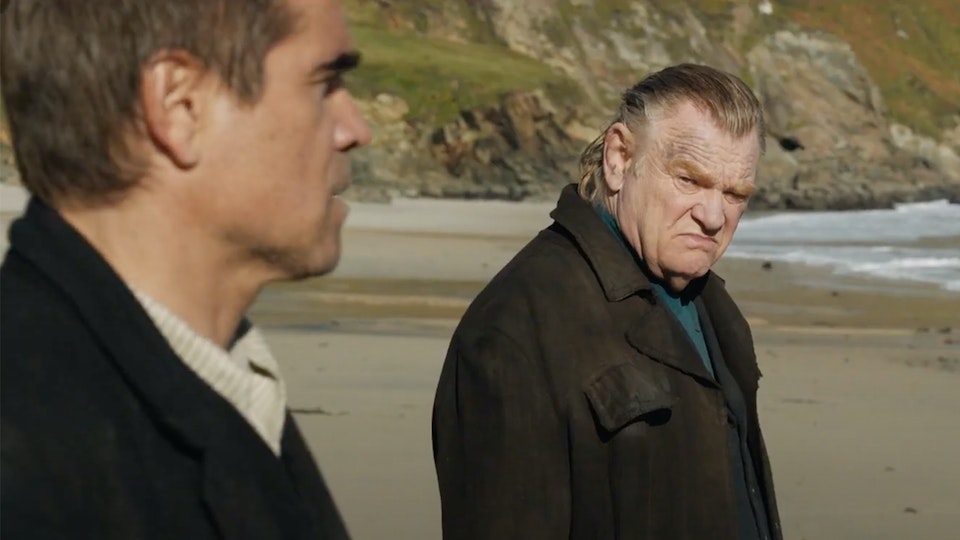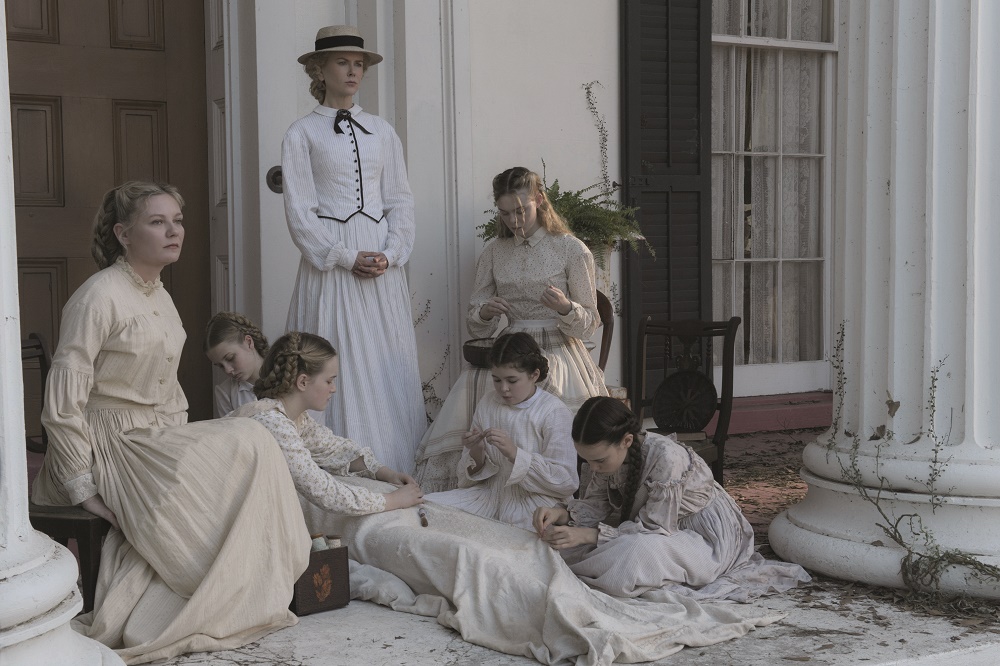The Banshees of Inisherin
by Hope Madden
Everything was fine yesterday.
Droll, dry and on point, that is the perfect tagline for Martin McDonagh’s latest bittersweet tragicomedy, The Banshees of Inisherin.
Existential dread picks up a brogue and a fiddle full of longing at JJ Devine’s Public House on an island off the West coast of Ireland in 1923. Pádraic Súilleabháin (Colin Farrell) has finished up with his sheep, horses, and beloved miniature donkey, Jenny. He heads today as every day to round up his best friend Colm Sunday Larry Doherty (Brendan Gleeson, perfect as always) for a pint.
But Colm ignores him. He just sits there, like.
Have they been rowing?
Pádraic doesn’t think they’ve been rowing.
It turns out that Colm has simply decided he doesn’t want to be Patraic’s friend anymore. The ripple effects of this decision are often hilarious, but just as often tragic and even awful. As Pádraic goes about trying to understand, reconnect, and change Colm’s mind we get to know the rest of the folk on the island as the Irish Civil War continues to rage.
It’s a microcosm, simultaneously intimate and universal. More than that, it’s a breathing example of the mournful humor and heritage of the Irish.
Barry Keoghan, honestly one of the most impressive actors working today, plays a little bent as the island’s main fool, Dominic Kearney. I don’t think there’s a performance in the film that won’t break your heart in one degree or another, Keoghan’s among them.
Kerry Condon’s Siobhan, Pádraic’s clear-eyed sister, is the fiery soul of McDonagh’s tale. As you might expect with a cast like this, it’s the chemistry among characters – the lived-in, weary familiarity bred by proximity– that lets McDonagh’s witty screenplay breathe. Gleeson’s soulful artist, Condon’s sharp realist, Keoghan’s lost soul, and especially Farrell’s nice fella orbit each other in a world quickly and irreversibly undone.
Carter Burwell’s camera and Ben Davis’s score remind you that the film is rooted in Irish mourning and melancholy, but McDonagh’s script still crackles with humor and pathos. And it contains maybe the best scene in a confessional ever.
Moments call to mind John Michael McDonaugh’s 2014 treasure Calvary, another Irish heartbreaker starring Gleeson. But McDonagh’s humor and insider’s perspective create something charmingly, achingly relatable.
The Banshees of Inisherin mines a kind of pain uncommon on a big screen. In Martin McDonaugh fashion, the mining is done with wit, insight, humanity and absolutely world-class acting. It must not be missed.









